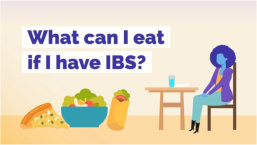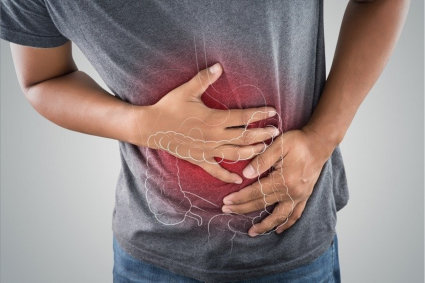 Treating IBS naturally. Yes we all overindulge at christmas, and yes it's great fun at the time. But the fall out afterwards can leave you feeling bloated, sluggish and not in a very happy place regarding your digestion. IBS affects 1 in 10 of us and can have a debilitating effect on our lives. So what is Irritable Bowel Syndrome? Irritable Bowel Syndrome (IBS) is a chronic gastrointestinal disorder that can cause symptoms such as abdominal pain, bloating, gas, constipation, and diarrhoea. While there is no one-size-fits-all diet for IBS, some individuals find relief by identifying and avoiding trigger foods. It's important to note that individual responses to foods can vary, and what works for one person may not work for another. Here are some general guidelines and commonly recommended foods for managing IBS: Soluble Fibre-Rich Foods such as: Oats, Barley, Quinoa, Brown rice, Bananas, Apples (peeled), Berries, Carrots.
Treating IBS naturally. Yes we all overindulge at christmas, and yes it's great fun at the time. But the fall out afterwards can leave you feeling bloated, sluggish and not in a very happy place regarding your digestion. IBS affects 1 in 10 of us and can have a debilitating effect on our lives. So what is Irritable Bowel Syndrome? Irritable Bowel Syndrome (IBS) is a chronic gastrointestinal disorder that can cause symptoms such as abdominal pain, bloating, gas, constipation, and diarrhoea. While there is no one-size-fits-all diet for IBS, some individuals find relief by identifying and avoiding trigger foods. It's important to note that individual responses to foods can vary, and what works for one person may not work for another. Here are some general guidelines and commonly recommended foods for managing IBS: Soluble Fibre-Rich Foods such as: Oats, Barley, Quinoa, Brown rice, Bananas, Apples (peeled), Berries, Carrots.
Soluble fibre can help regulate bowel movements and reduce diarrhoea.
 Low-FODMAP Foods:
Low-FODMAP Foods:
The low-FODMAP diet is often recommended for IBS. FODMAPs (fermentable oligosaccharides, disaccharides, monosaccharides, and polyols) are certain types of carbohydrates that may trigger IBS symptoms. Foods low in FODMAPs include: Lactose-free dairy, Gluten-free grains (e.g., rice, quinoa).
Low-FODMAP fruits (e.g. strawberries, blueberries). Non-cruciferous vegetables (e.g. spinach, zucchini). Lean proteins (e.g. poultry, fish).
Probiotic-Rich Foods: Yogurt with live active cultures, Kefir, fermented foods (e.g., sauerkraut, kimchi). Probiotics can promote a healthy balance of gut bacteria and may help alleviate symptoms for some individuals with IBS.
Peppermint Oil:
Peppermint oil capsules may help relieve symptoms like abdominal pain and bloating.
Ginger:
Ginger has anti-inflammatory properties and may help with nausea and digestive discomfort.
Lean Proteins:
Skinless poultry, fish, Tofu and eggs are generally well-tolerated sources of protein.
Hydration:
Drink plenty of water to stay hydrated, which is important for overall digestive health.
Small, Frequent Meals:
Eating smaller, more frequent meals may be easier on the digestive system than larger meals. The main thing to achieve when having a flare up is to soothe and heal the digestive tract. Aloe vera is very helpful at doing this and taken as a liquid twice a day can have a real positive impact on your digestive system. The superfood I find most helpful is Chlorella powder. This has a wonderful way of removing unwanted bacteria in the gut and adding the good stuff back in such as probiotics, minerals and vitamins, that are overall going to make you feel heaps better. Stay away from fast foods, dairy products, wheat and processed meats as these will all add to your discomfort. Focus on vegetables, low glycemic fruits, fresh juices, such as celery juice and eat as plant based as you can. As a Nutritionist I have seen how people can turn their health around within 2-3 weeks giving great relief. Remember you are what you eat. If you are looking for a personalised health plan then check out my website to see more: www.denisekellywellness.com or give me a call to discuss your health concerns - 07730671436 Make 2024 the year you get in control of your health.